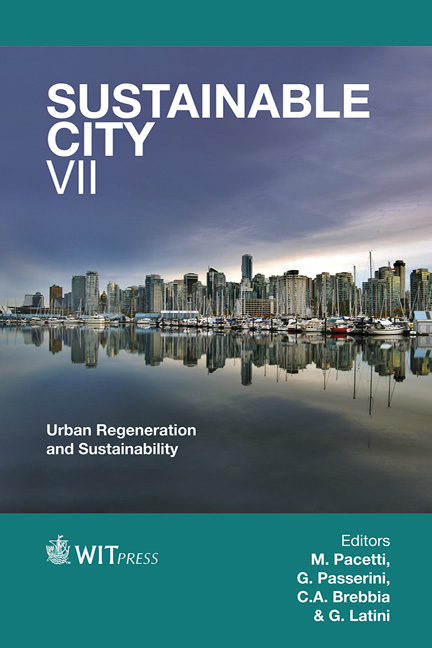Greening Warsaw’s Transport System By Sustainable Urban Planning
Price
Free (open access)
Transaction
Volume
155
Pages
12
Page Range
267 - 278
Published
2012
Size
485 kb
Paper DOI
10.2495/SC120231
Copyright
WIT Press
Author(s)
J. Malasek
Abstract
Coordination of spatial and transport planning policy for modern land management in Warsaw follows the guidelines prepared in three main city documents: \“Development strategy for the city of Warsaw until 2020”, \“The study of Warsaw spatial development conditions and directions of development” and \“The strategy for sustainable development of Warsaw transport system by 2015 and subsequent years”. It helps to make public transport modes more attractive for passengers and to achieve the wide public acceptance for car traffic restrictions. Sustainable urban planning is a chance for improvement, or at least not worsening, living standards in metropolis, where streets over packed by cars make cities less attractive not only for inhabitants, but also for visitors and investors. The most important achievement of Polish urban planning practice is that all documents shaping conditions for Warsaw’s sustainable development are well correlated. The development strategy formed the general guidelines which were implemented in Warsaw’s spatial policy. Transportation policy, the city document prepared as the last one, forms main objectives following the spatial policy guidelines. This Warsaw experience could be followed by other Central European cities implementing modern land management for urban dynamics. Warsaw, the capital city of Poland, shares its experience in sustainable urban planning, taking part in the European project GUTS (Green Urban Transport Systems) for improvement in quality of life factors. Keywords: urban planning, transportation policy, sustainability.
Keywords
urban planning, transportation policy, sustainability.





